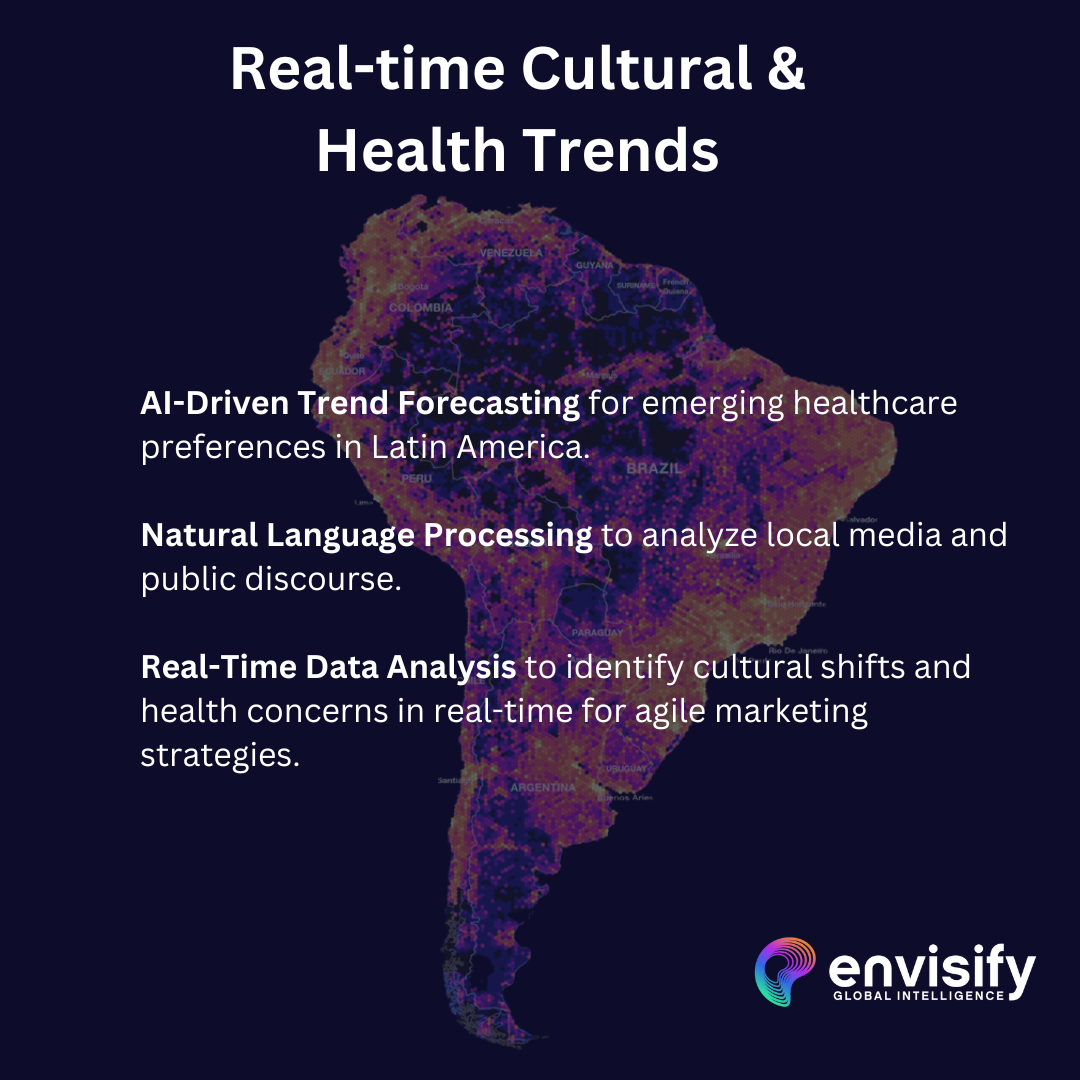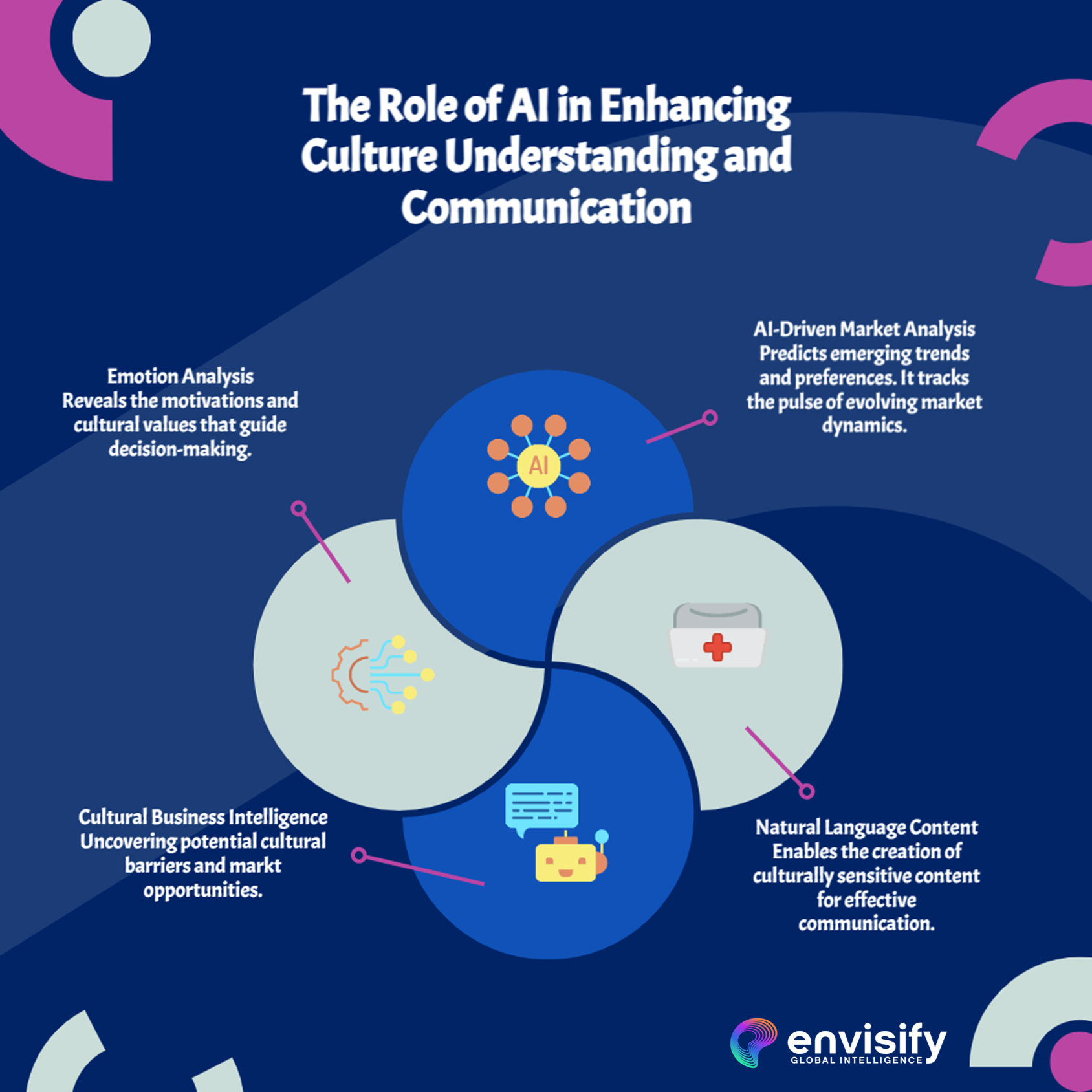Leveraging Cultural Intelligence and AI for Latin American Markets
In an increasingly globalized healthcare landscape, understanding and catering to diverse patient populations has become crucial for success in destination medicine. At the recent USCIPP Annual Meeting, industry experts gathered to discuss the future of global healthcare, and the focus of my presentation was on how to leverage cultural intelligence and artificial intelligence (AI) to better serve international patients, especially in Spanish-speaking countries in Latin America.
The Latin American Opportunity: A Nuanced Landscape
Latin America presents a significant opportunity for healthcare providers looking to expand their reach in destination medicine. The region, spanning from Mexico to Argentina, is a cultural melting pot with diverse traditions, socioeconomic demographics, and healthcare systems. Affluent populations in Latin America, often concentrated in major cities and coastal regions, are increasingly seeking advanced medical treatments and technologies, both within and outside their home countries.
It's crucial to understand that despite sharing Spanish as a common language (except for Brazil), each country has unique cultural identities and socio-economic realities that must be carefully considered as well as business etiquette and communication styles for each country. Other important factors to consider are business etiquette and communication style, wealth distribution, and socio-economic factors of the region. For instance, let's use 3 country examples:

Colombia: High net-worth individuals are concentrated in major cities like Bogotá, Medellín, and Cali. There's also a growing middle class with disposable income seeking premium healthcare.
-
Peru: Wealth is significantly concentrated in Lima, the economic hub. The growing mining industry is driving wealth creation in certain regions.
-
Dominican Republic: The tourism industry is a major wealth generator, with significant affluence among hotel owners, resort developers, and others involved in the sector.
By recognizing and respecting these cultural and economic nuances, healthcare providers can develop more effective strategies to reach and serve diverse Latin American populations, ultimately becoming a preferred destination for global healthcare.
Cultural Intelligence: The Key to Success
Understanding the unique cultural nuances, language preferences, and specific healthcare needs of Latin American populations is essential for organizations aiming to provide preferential and curated healthcare services. Cultural intelligence goes beyond surface-level observations, delving into the deeper aspects of culture that influence behavior, performance, and outcomes. Emerging technologies like AI and machine learning offer powerful tools for gaining cultural insights and understanding market dynamics when targeting patients in Spanish-speaking countries.
AI Applications in Cultural Intelligence
- AI-Driven Market Analysis: AI-driven data analytics can help identify key opportunities and potential cultural barriers in specific Latin American markets.
- Natural Language Content: Natural language generation can be used to create culturally nuanced content in Spanish and English, ensuring effective communication of healthcare services.
- Sentiment Analysis: AI-powered tools can analyze social media and online forums to uncover healthcare motivations and cultural values that influence decision-making.
- Trend Forecasting: Implement AI-driven trend forecasting to anticipate emerging healthcare preferences in target markets.
Developing Culturally Intelligent Strategies
By combining cultural intelligence with AI-powered insights, healthcare providers can develop more effective strategies for reaching and serving Latin American patients:
- Tailored Action Plans: Leverage AI to develop dynamic, culturally adaptive marketing strategies that resonate with specific target audiences.
- Precision Digital Marketing: Utilize AI-powered programmatic advertising for hyper-targeted campaigns that speak to cultural nuances.
- Strategic Partnerships: Use AI-driven partner matching to identify culturally aligned local healthcare providers, travel agencies, and concierge services.
Ethical Considerations
While AI offers powerful capabilities for enhancing cultural intelligence, it's crucial to maintain human oversight and ethical practices:
- Ensure the responsible use of AI in healthcare marketing
- Balance technological innovation with cultural respect
- Prioritize patient privacy and data security
Conclusion
As the future of destination medicine and global healthcare continues to evolve, the integration of cultural intelligence driven by diverse human and cultural fluency training and AI will play a pivotal role in shaping successful strategies and ultimately delivering more personalized and culturally sensitive care. By combining technological advancements with a deep understanding of cultural nuances, healthcare providers can ensure that healthcare services are not only advanced but also resonate with the values, beliefs, and preferences of patients from different cultural backgrounds.
To download a copy of the presentation for the US Cooperative for International Patient Programs (USCIPP) Annual Meeting, a program of The National Center for Healthcare Leadership (NCHL) fill out the form below "Download the Report".




